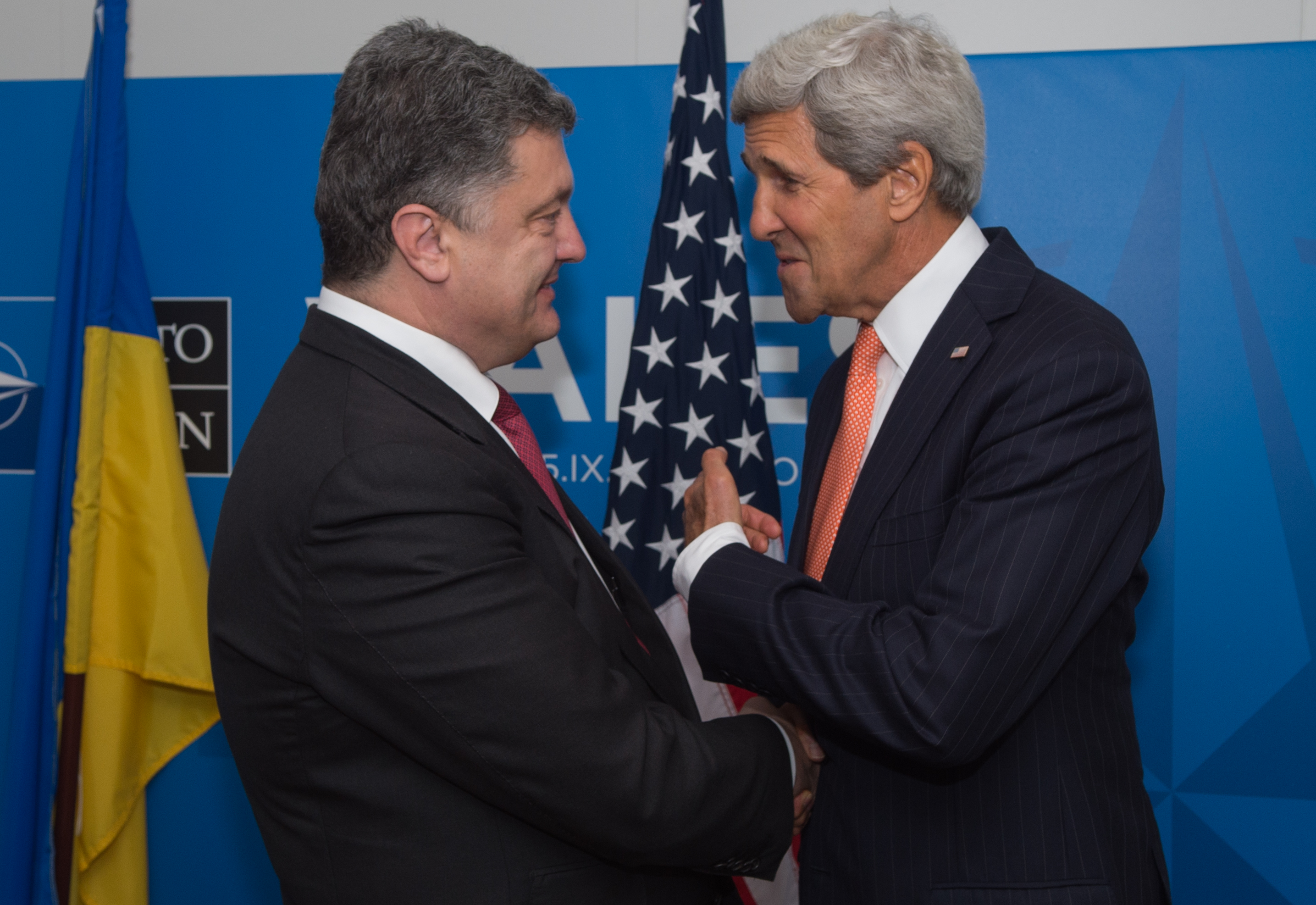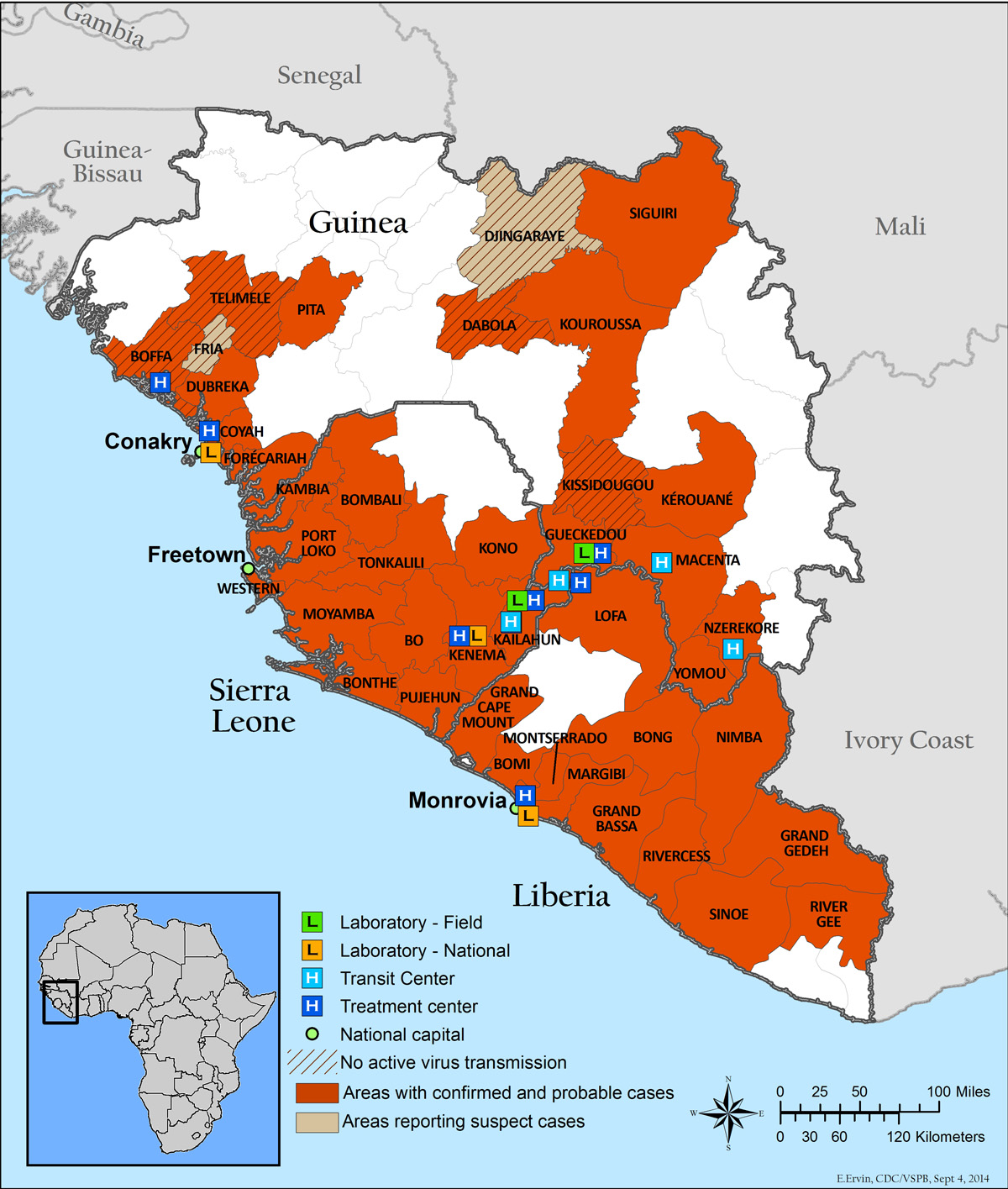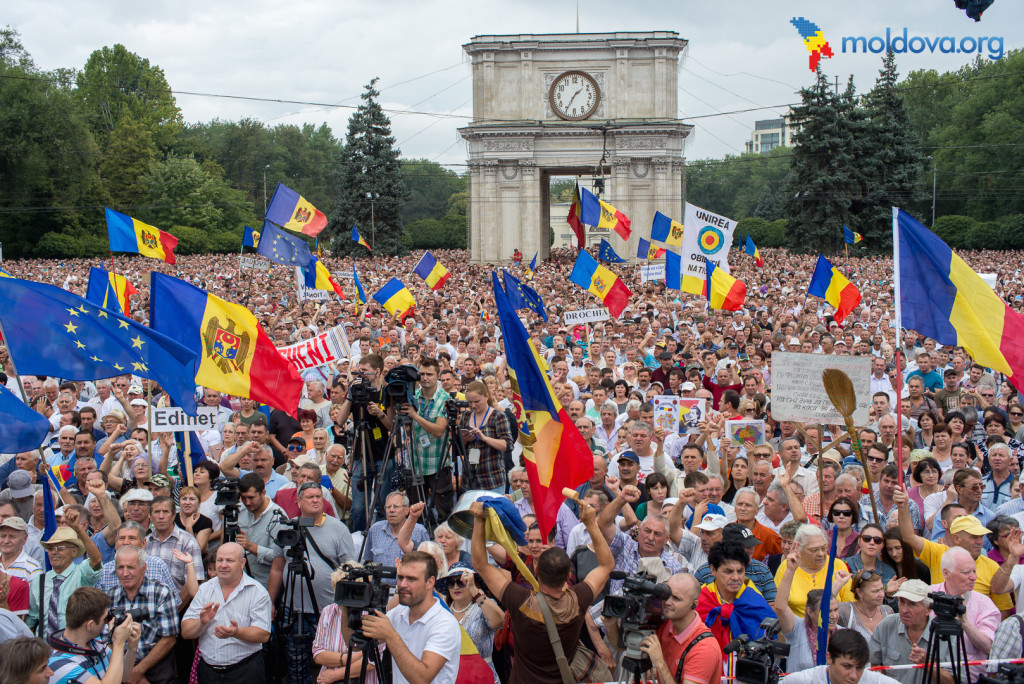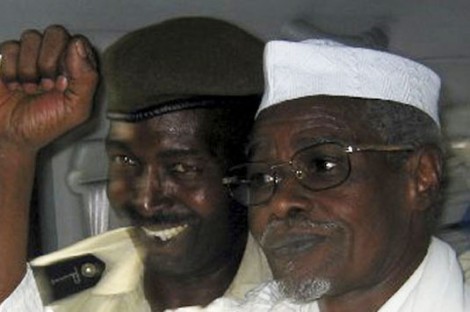Since the start of the conflict between Russia and Ukraine in March 2014, when Russia annexed Crimea and conflict erupted in the Donbas region, there has been a dramatic shift in opinion among Ukrainians about the benefits of NATO membership.
NATO’s involvement in Ukraine dates back to the early 1990s, with the newly independent Ukraine joining NATO’s the North Atlantic Cooperation Council in 1991 and the Partnership for Peace in 1994. The NATO-Ukraine Commission, established in 1997, is the basic foundation underpinning NATO-Ukraine relations, and under its auspices critical cooperation has developed in the realm of peace-support operations, security sector reform, civil emergency planning, and public diplomacy. Long-standing cooperation between NATO and Ukraine, however, has only in recent years seen strong support among the Ukrainian public.
For the first time in August 2015, a poll by the Democratic Initiatives Foundation showed that a majority of Ukrainians approved of their country joining NATO. The overwhelming 64% majority of the public saying they would vote in favour of NATO accession stands in stark contrast to the feeble 21% who supported NATO membership in 2009. This rapid rise in support for NATO among the public has been matched by increasing support for Euro-Atlantic integration at the political level, with President Petro Poroshenko signing a bill into law overturning the non-bloc status of Ukraine in December 2014. Removing this law, which was a central policy during the pro-Russian presidency of Viktor Yanukovych, opens the way for Ukraine to start the process of fulfilling criteria for NATO membership. 5 in 6 parties in parliament now call for closer cooperation with NATO in their programs.
However, at the same time that deepening the strategic partnership between Ukraine and NATO is listed as the priority national interest by the Ukrainian Ministry of Foreign Affairs, two major issues stand in the way of Ukraine’s NATO ambitions: firstly, a poll by the Pew Research Center from June 2015 reveals that there is considerable opposition among NATO member states to accepting Ukraine as a member of the Alliance; secondly, as public opinion on NATO in Russia has plummeted as fast as it has risen in Ukraine, it is clear that any Ukrainian move to get closer to NATO would be met with considerable opposition and quite likely with retaliatory action from Russia. The Pew poll shows that Russians overwhelmingly continue to hold President Putin in high esteem, and that patriotism is at an all-time high with 63% having a favourable image of their country. This is despite the majority of Russians surveyed stating they are unhappy with their country’s economic situation.
More worryingly, the Pew survey shows that a strong majority – 61% – believe that parts of other countries belong to Russia. This is an existential issue not only for Ukraine in relation to Crimea and occupied parts of the Donbas, but also for Georgia and Moldova, who both have breakaway republics – Abkhazia and South Ossetia, and Transnistria, respectively – which are the source of long-standing territorial disputes with Russia and of ongoing regional instability. In common, these regions have their reliance on Russian military and economic support for maintaining their de facto autonomous status, and their limited recognition by the international community.
While NATO continues to condemn Russia’s illegal and illegitimate annexation of Crimea and to reassert their support of Ukraine’s sovereignty and territorial integrity, there is mixed enthusiasm within the Alliance to go so far as to grant Ukraine NATO membership. Poland and Spain are among the strongest supporters, with 60% and 65% of their publics in support of joining NATO, respectively. However, only 37% of Italians and 41% of Germans are in support of Ukraine’s membership. Furthermore, the Pew survey reveals that public opinion in a majority of NATO countries shows itself opposed to sending arms to Ukraine – signaling that many allied countries, including Germany, France, Spain, and Italy, would be reluctant to uphold Article 5 in the case of Ukraine. The founding principle of NATO, Article 5 enshrines collective defense in its declaration to consider “an armed attack against one or more [members as] an attack against them all.” As such, with large chunks of Ukrainian territory currently occupied by Russian forces, combined with the fact that publics in key NATO countries are unwilling to send military aid to Ukraine, the prospective of full membership in the Alliance appears unlikely in the near future. And thus, while NATO is responding to the conflict in Ukraine with the largest reinforcement of collective defense since the end of the Cold War, membership itself is not on the negotiating table.
The uncertainty surrounding the full extent of NATO’s commitment to Ukraine is an issue of increasing frustration for the Ukrainian government. “Lack of prospective NATO membership for Ukraine has a negative impact on the security environment in the region,” said Ivanna Klympush-Tsintsadze, Ukraine’s deputy prime minister, at the Warsaw Summit. “The West needs to make a very strategic, long-term choice and not look for any excuses today to turn away from Ukraine.”
However, while in Kyiv NATO membership may be perceived as the best security guarantee Ukraine could hope to obtain, for a significant number of NATO member states, such a move would be considered to have precisely the opposite effect. Many, with good reason, see the expansion of NATO to former Soviet republics such as Ukraine and Georgia as a move that may destabilize the entire alliance and bring it into open conflict with Russia. Sigmar Gabriel, Germany’s Vice Chancellor from the Social Democratic Party, has stated he is opposed to increasing NATO’s military presence in eastern Europe, and that he is “not in favour of us constantly escalating the relationship with Russia.”
For NATO, the stakes are high. Extending membership in the Alliance to Ukraine risks provoking Russia into a full-on confrontation. For Ukraine, who risks being left at the mercy of Russia’s revisionist territorial ambitions, the stakes are even higher.
Photo: John Kerry and Ukraine President Poroshenko shake hands at 2014 NATO Summit in Wales, (2014) via Wikimedia Commons. Licensed under CC BY 2.0.
Disclaimer: Any views or opinions expressed in articles are solely those of the authors and do not necessarily represent the views of the NATO Association of Canada.




